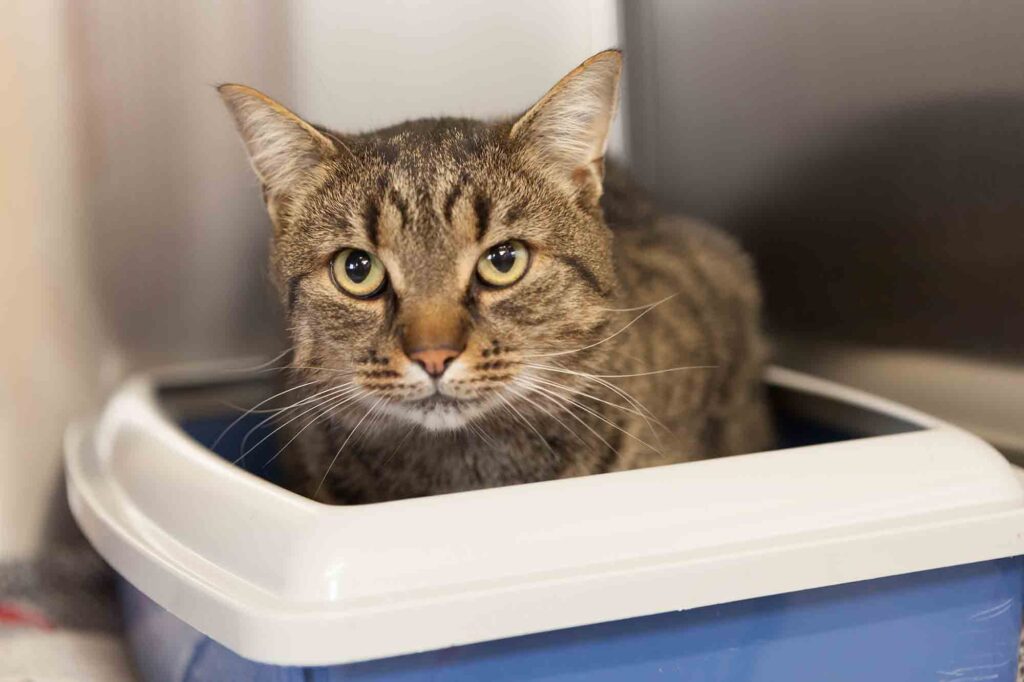Urinary Tract Infections
The urinary tract is supposed to be a sterile environment, but when bacteria gain entrance, problems can occur. A urinary tract infection (UTI) occurs when bacteria make their way into the other parts of the urinary tract, including the bladder, ureters (tubes that carry urine to the bladder), and kidneys. The bladder is the most common organ of the urinary tract to be infected.
UTIs are easily treated with antibiotics, but pets with recurrent UTIs may have an underlying condition that needs to be addressed, including:
- Abnormal formation of the urinary tract
- A growth in some part of the urinary tract
- An antibiotic-resistant bacteria
- Urinary stones
- A health condition, such as Cushing’s disease or diabetes
Cystitis
Cystitis, an inflammation of the lining of the bladder, is a common urinary problem in pets, particularly cats. Cystitis can occur with or without infection and is associated with many of the same symptoms as a UTI. Cats with cystitis may stop using their litter boxes, as they associate it with pain or discomfort.
Although cystitis is simple to diagnose with a urine sample, it can be difficult to pinpoint the exact cause of the condition. Cystitis is generally treated by managing the pain, the use of antibiotics, and often a prescription diet to prevent a recurrence.
Urinary Stones
Stones can form in the bladder, kidneys, or other parts of the urinary tract and can cause serious problems for pets. There are a variety of causes, including recurrent UTIs, genetic conditions, or abnormal urine pH or mineral content.
X-rays and/or ultrasounds are necessary in order to diagnose urinary stones, and surgery is generally required to remove them. Once the stone is retrieved and analyzed, we can make recommendations for preventing a recurrence, such as dietary changes or supplementation.
Symptoms of Urinary Problems in Pets
The most common urinary problems in pets often have overlapping symptoms. These can include:
- Frequent urination
- Excessive thirst
- Blood in the urine
- Inability to urinate/urinating in small amounts
- Refusal to use litter box/sudden house soiling
- Signs of pain while urinating (crying, straining, etc.)
- Loss of appetite or thirst
- Hiding
- Abdominal pain
If your pet is showing any signs of a urinary issue, please call the staff at The Maywood Veterinary Clinic right away to schedule an appointment. Delaying treatment may not only lead to unnecessary pain and discomfort for your pet, but may put them at risk for a more aggressive infection, or other serious health problems, down the road.




